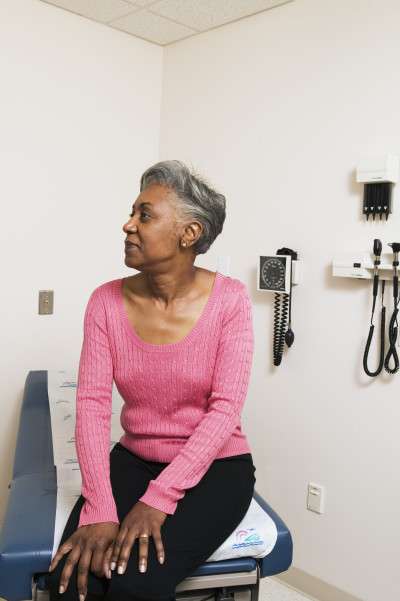Talking to doctors presents challenges to the black community that contributes to reduced usage of the healthcare system. The first hurdle is a psychological one; is the physician a friend or foe?
A look at the death rates1 of Black and White Americans show a steady decline since 1960. There remains a long-standing gap that has begun to narrow since the mid-1990’s (Arialdi Minino-Death in the United States).
Many Black Americans feel that they are talked down to2 by the doctor and that the whole experience is stressful. This reinforces the idea that African Americans believe they are always under attack from law enforcement and some media outlets. Local and state governments allocate few resources to improve their neighborhoods. These same authorities spend enormous amounts on policing the black community in a very aggressive manner. The Ferguson, Missouri ordeal comes to mind as a recent example. When blacks exercise their voting rights as American citizens, barriers are created to make it harder to vote.
Lack of Black Doctors in Family Practice a Major Problem
The lack of black doctors practicing in the primary (family) care field is a major problem. Black patients are often uneasy disclosing sensitive medical information to doctors who they may consider part of the system that suppresses them.
Despite all the reasons above to distrust the healthcare system, you must be an active participant in it! Why? The Centers for Disease Control and Prevention lists the ten leading causes of death for African Americans3. Most of these causes of death can be significantly reduced if you work as a team with your doctor and make some lifestyle changes.
Below is an article from the National Institutes of Health (NIH) which gives a general overview of seeing your doctor.
Resources From the National Institutes of Health (NIH)
More and more, today’s patients are playing an active role in their health care. Patients and doctors work closely together to achieve the best possible level of health care. An important part of this partnership is clear communication. Asking the right questions and obtaining quality information about prevention, diagnosis, treatment, and recovery help ensure safety, prevent errors, and improve health.
For example:
-
Sharing questions about prescriptions which can prevent taking too much or too little medicine.
-
Being honest about symptoms can help doctors order the right tests and make the right diagnoses.
-
Clear instructions after an operation or hospital stay may be the difference between complete recovery or re-injury and relapse.
Taking a family member, friend, or caregiver to help you communicate with your doctor can help. So can writing down your questions or concerns in advance of your appointment. NIH offers several publications that can also help promote meaningful interactions between patients and doctors.
How to Talk to your Doctor
-
Preparing for Your Doctor Visit4
-
Questions to ask Your Doctor5
Jay Harold believes that developing a working relationship with your doctor is a crucial factor in maintaining and improving your Health.
Click this link to get free Health and Wealth information to improve your life. Play the free “Slow Roll Through Civil Rights” Game found on the Jay Harold website. Enjoyed this post? Share it and read more here.
Bibliography
- http://www.cdc.gov/nchs/data/databriefs/db64.pdf
- http://ns.umich.edu/new/releases/8224
- http://www.cdc.gov/men/lcod/2010/lcodrace_ethnicitymen2010.pdf
- http://www.ahrq.gov/patients-consumers/patient-involvement/ask-your-doctor/questions-before-appointment.html
- http://www.ahrq.gov/patients-consumers/patient-involvement/ask-your-doctor/10questions.html






